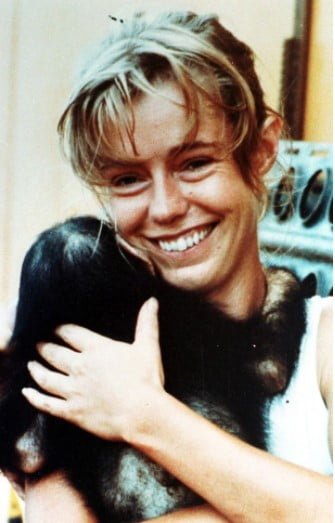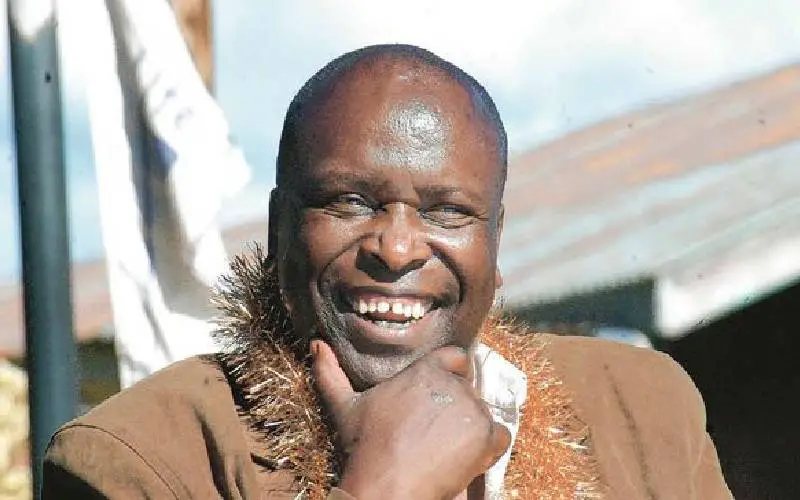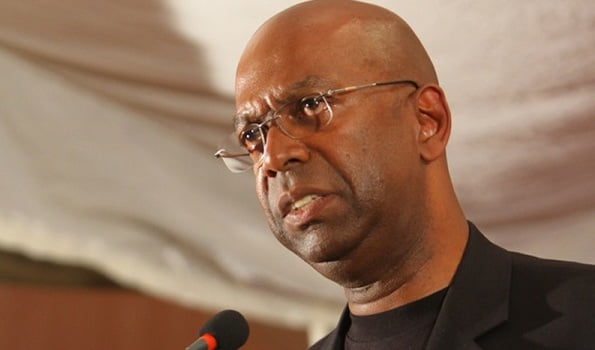
A trial with twists and turns for long kept the nation guessing on who could have been involved in the gruesome murder.
Now, 32 years since the horrific killing of the wildlife photographer at the Masaai Mara, John Ward, the victim’s unrelenting father, is still on a quest for justice as he seeks to expose her daughter’s killers, saying the death of who he claims to be the prime suspect has sparked a deluge of fresh evidence.
John Ward, who has spent £2million (close to Sh300 million) and made more than a hundred trips to the Maasai Mara to bring his daughter’s killer to justice earlier this month said he believes that 28-year-old Julie was killed by Jonathan Moi, son of Kenya’s second president Daniel Moi.

According to the English businessman who has made his wealth through hotels, his search for truth and justice has repeatedly hit a brick wall.
He even claims that the British authorities including the deadly MI6 had helped Kenyan officials to cover up the murder but it was only after President Moi death in February this year that witnesses felt safe to come forward.
Julie’s death
On 17 September 1988, the daily Nation featured a short article titled ‘British tourist eaten by beasts’.
The Kenyan newspaper quoted Kenyan police as saying they did not know how the woman had died or which animals had eaten her, but that lions, hyenas, cheetahs and leopards were among the animals in the Maasai Mara Game Reserve where the remains had been found five days earlier.
The woman in question was Julie.
She had been reported missing on 6 September, before her remains were found on 13 September.
Julie had travelled to Kenya on February 7, 1988, for a seven-month wildlife photography excursion.
Fearing life “was passing her by”, she decided to travel to Africa to photograph animals.
A week before her return home, she took one last trip to the Maasai Mara for the wildebeest migration but went missing on September 6, 1988.
Sensing that something was wrong, Julie’s father John Ward, now 85, took a plane and went searching for her in the Mara.
John paid for five aircraft to conduct a grid search of the area where Julie had been last seen and her Suzuki was spotted in a gully.
Her body was eventually found over 15 kilometres away, in a remote corner of the game park rarely visited by tourists, with her jaw and left lower leg badly burnt.
The leg had also been chopped off by a blow from a panga or something sharp.

The first information concerning Jonathan, the son of Kenya’s former President Daniel Moi, came from a Swiss TV crew working in the park.
They had offered their five radio-equipped vehicles to assist in the search for the missing tourist but Senior warden Simon ole Makallah abruptly told them to mind their own business.
The crew had heard rumours about Jonathan being seen with a group of men in the park.
John, who recently spoke to the UK Mirror, now says that after more than three decades of investigations, he has been left with no doubt that Moi was to blame.
He says that he flew to Nairobi once again in September last year to chase what he called a potential new lead.
“We now have information that he was. Once Moi died, people were more willing to speak. I met one guy who was able to tell us Moi had been in the park, had been in that immediate area where the body was found, and he had proof. When I met him he was physically trembling,” he told The Mirror’s Dan Warburton.
This isn’t the first time Mr Ward has publicly spoken out.
Appearing on Citizen TV in September 2018, he expressed disappointment in how slow the case progressed and that no one had been convicted following the murder that shook the country.
He recounted how he found remains of his daughter’s body, noting that the jaw and the burnt body parts were invaluable proof that she died as a result of foul play.
John followed up the revelations with an article on the Nairobi Law Monthly, a Kenyan magazine, with a damning and sensational article alleging that Jonathan raped and murdered Julie Ward.
Recounting the incident in his latest interview with The Mirror, he said Moi’s farm manager at the time Mr. Ibrahim Choge unsuccessfully attempted to step in to stop him.
Mr Choge – who was married to President Moi’s daughter Doris – reportedly quit working for the family.
He died in a road accident 10 years later, which John Ward claims came after Mr Choge threatened to expose Moi.
Mr Choge’s father Simeon Choge is a former assistant minister who served as Aldai Comstitunency MP between 1969 and 1974.
John claims he also says his son’s death was orchestrated and blamed police for allegedly covering it up.
In another interview, John revealed that when his daughter Julie and her British boyfriend landed in the country, they stumbled upon Jonathan Moi at a restaurant and that he fell in love with her.
He offered to take them to Masai Mara but their car broke down.
The boyfriend then returned to Nairobi for spare parts but was reportedly ordered by Kenyan authorities to leave the country.
This is believed to have angered Julie who picked a quarrel with Jonathan around the time she vanished before later turning out dead.
Jonathan, however, refuted the claims.
“I am totally shocked to hear this. I had no relationship with the said lady (Julie) and I even didn’t know her. I never did such a thing and it has never crossed my mind to do it,” he told the press.
Reports were also rife at the time that State House was an accomplice in the cover-up
Netflix Show
In his latest disclosure, John Ward revealed that filmmakers are interested in making a 10-part Netflix series from his extraordinary story.
John Ward the father of wildlife photographer Julie Ward who was raped & murdered in Maasai Mara 32 years ago speaks about a book release, TV documentary & Netflix film that will tell the truth about the murder. Claims the British govt helped Kenyan govt to cover up. pic.twitter.com/9WUWPJz2MW
— Wambui (@Waambui) August 23, 2020
Despite both nations denying it, he insists the UK government wanted to avoid rocking diplomatic relations with Kenya.
“They chose to support Moi rather than me. They supported a Kenyan cover-up to maintain diplomatic relations. They hoped it would die down and I’d go away – but we haven’t let it. People tried to sweep it under the carpet, you get quite bloody-minded. It goes on and on, it never stops,” he told The Mirror.
So where is justice? A short timeline…
In 1992, after the first of two trials, two junior park rangers were acquitted of her murder due to a lack of evidence.
The presiding judge in the trial recommended the investigation of the head park ranger.
In 1997 the case was re-examined by a fresh team of Kenyan police.
In July 1998 Simon Ole Makallah, who was the chief park warden at the time of the murder, was arrested following a two-year investigation.
On 16 September 1999 Simon Ole Makallah was found not guilty at the second trial due to lack of evidence.[12][2]
In 2004 a British inquest, held at Ipswich, recorded a verdict of unlawful killing.
In October 2009 the case was reopened after a secret visit, to Kenya, by John Yates, the head of the Metropolitan Police’s anti-terrorism squad.
In December 2009 Valentine Ohuru Kodipo, a key witness of the murder, died. Kodipo died in Denmark where he had lived in exile for more than 20 years. Ward’s murder was so sensitive that Kodipo had fled Kenya following his testimony.
Three decades later years and John Ward is not showing any sign of resign towards the case, in fact, two years ago, he brought his son, Rob Ward, in on the case.
They trust the pieces of evidence they have collected over time to finally get justice for Julie.

















































